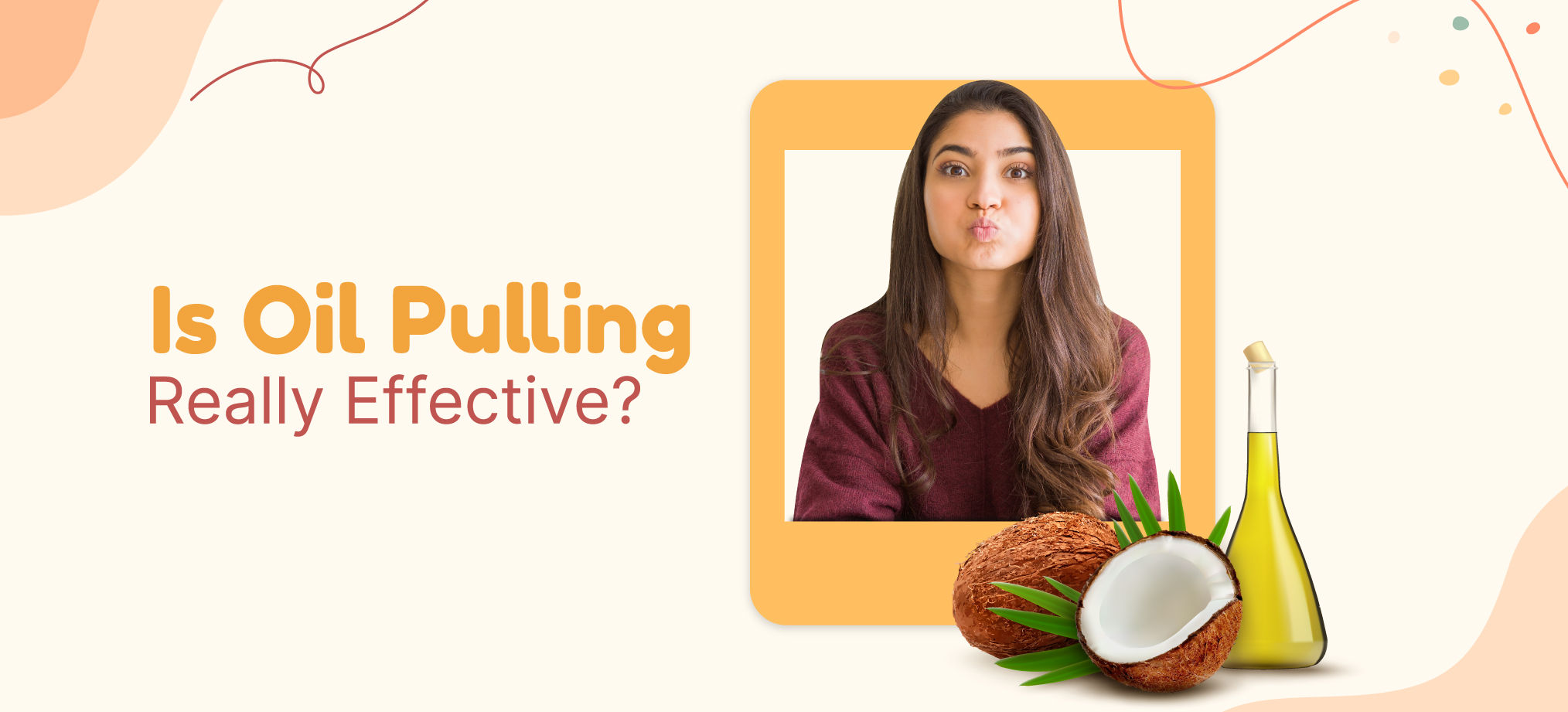General Health
Oil Pulling: Know How It Promotes Good Oral Hygiene
3 min read
By Apollo 24|7, Published on - 30 March 2023, Updated on - 11 March 2024
Share this article
0
34 likes

Poor oral health can not only lead to various oral issues such as gum diseases, and tooth decay, but also heart problems. While you may be aware of brushing and flossing, there is another natural remedy popularly known as oil pulling, which help prevent bacterial growth, bad breath, and gingivitis and maintain good oral health. In this blog, we will explore its potential benefits, and how to incorporate it into your daily oral hygiene routine.
What is Oil Pulling?
Oil pulling is a centuries-old practice that involves swishing edible oil around in the mouth for several minutes. This ancient technique that originated from Ayurvedic medicine is believed to have a wide range of oral health benefits, from reducing harmful bacteria in the mouth to promoting healthy teeth and gums.
One can use extra-virgin coconut, sesame, sunflower and olive oils for oil pulling. Spending 10 to 15 minutes daily for oil pulling can give you the best results to prevent various tooth problems and maintain overall oral health.
Benefits of Oil Pulling for Oral Health
Here are some reasons why you should consider oil pulling to improve your oral health.
1. Reduces Harmful Bacteria
Through a process known as emulsification, oil pulling removes harmful bacteria from the mouth. Swishing oil in your mouth causes it to bind to the outer layer of bacteria, which is mostly fat- or oil-based membranes. The oil's texture changes as it mixes with saliva and enzymes, causing it to become thinner and white in colour.
When you spit out the oil after 15-20 minutes of swishing, you also spit out the bacteria that gets trapped in it. Furthermore, oil pulling may help to prevent bacteria from adhering to the teeth and gums in the future, lowering the risk of dental issues such as cavities and gum diseases.
2. Freshens Breath
Bad breath, also known as halitosis, is frequently caused by a bacteria buildup in the mouth. These bacteria produce volatile sulphur compounds, which emit a foul odour. Oil pulling can help loosen and dislodge bacteria that get stuck on the surface of the tongue, teeth, and gums. This can help reduce the bacterial count, which can lessen the production of these volatile sulphur compounds and freshen up breath.
3. Prevents Cavities
The primary cause of cavities is the buildup of plaque, a sticky film of bacteria that forms on the teeth. Oil pulling may help to prevent the formation of cavities by removing plaque and harmful bacteria from the mouth. Besides, oils like coconut oil have antibacterial properties that may inhibit the growth of harmful mouth bacteria.
4. Anti-inflammatory Effects
Oil pulling can reduce the binding of harmful bacteria and other debris that contribute to inflammation, thereby reducing inflammation in the mouth. Moreover, coconut oil contains lauric acid, which has been shown to have anti-inflammatory properties.
While oil pulling is generally considered safe, it's important to remember that some people may be allergic to the oil commonly used. So, before starting, doing a quick patch test is recommended to ensure you don't have any negative reactions. That being said, it's important to remember this practice should not replace brushing and flossing, which are essential for maintaining good oral health.
To know how to maintain better oral hygiene, click the below button.
Medically reviewed by Dr Sonia Bhatt.
General Health
Leave Comment
Recommended for you

General Health
Know Everything About Hypertension: Tips to Lower Blood Pressure Naturally?
High blood pressure, also called hypertension. Because of hypertension, many individuals all over the world are suffering with multiple diseases that are affecting ones daily life.

General Health
All You Need To Know About Nipah Virus
Nipah virus (NiV) transmits from animals to humans, primarily through fruit bats. Symptoms of a Nipah virus infection vary from mild to severe and there's no cure or vaccine. The treatment focuses on symptom management and you can take certain precautions to prevent Nipah virus infection.

General Health
Importance of Early Diagnosis in Healthcare
Discover why early diagnosis in healthcare is vital. Learn about its impact on treatment outcomes and patient well-being.
Subscribe
Sign up for our free Health Library Daily Newsletter
Get doctor-approved health tips, news, and more.
Visual Stories

Could There Be More to Your Snore?
Tap to continue exploring
Recommended for you

General Health
Know Everything About Hypertension: Tips to Lower Blood Pressure Naturally?
High blood pressure, also called hypertension. Because of hypertension, many individuals all over the world are suffering with multiple diseases that are affecting ones daily life.

General Health
All You Need To Know About Nipah Virus
Nipah virus (NiV) transmits from animals to humans, primarily through fruit bats. Symptoms of a Nipah virus infection vary from mild to severe and there's no cure or vaccine. The treatment focuses on symptom management and you can take certain precautions to prevent Nipah virus infection.

General Health
Importance of Early Diagnosis in Healthcare
Discover why early diagnosis in healthcare is vital. Learn about its impact on treatment outcomes and patient well-being.
